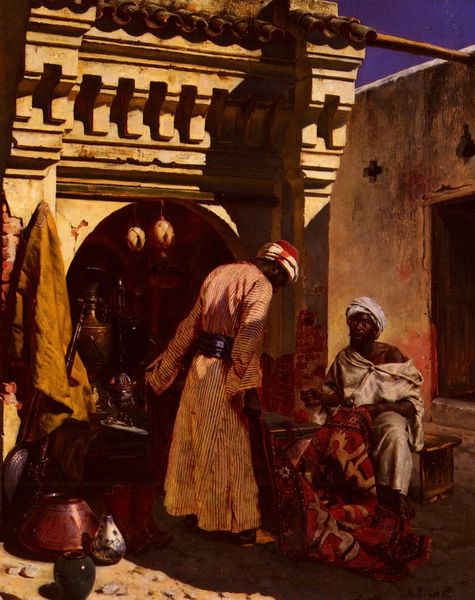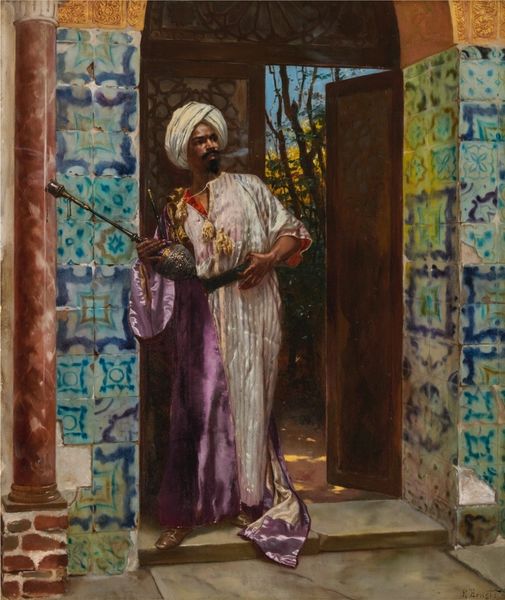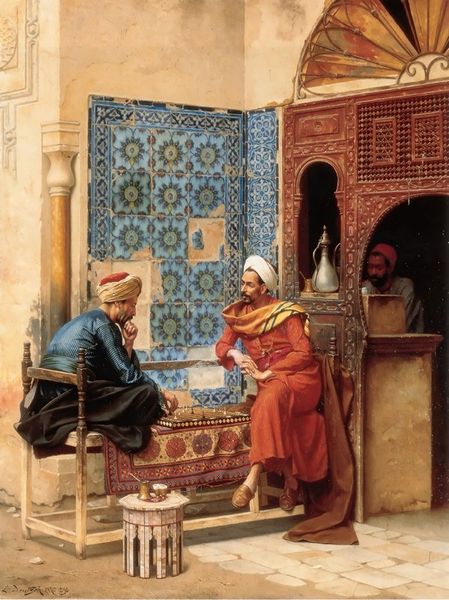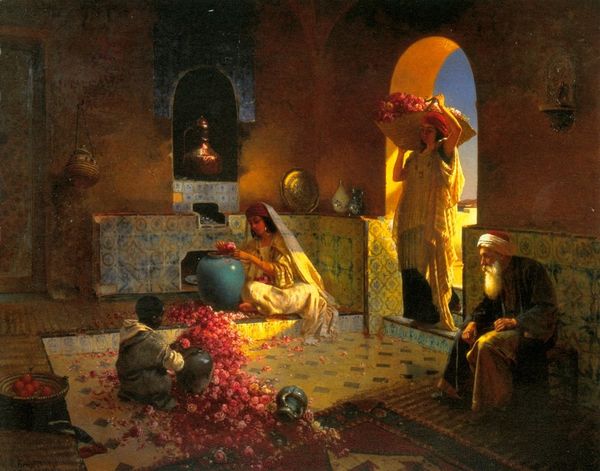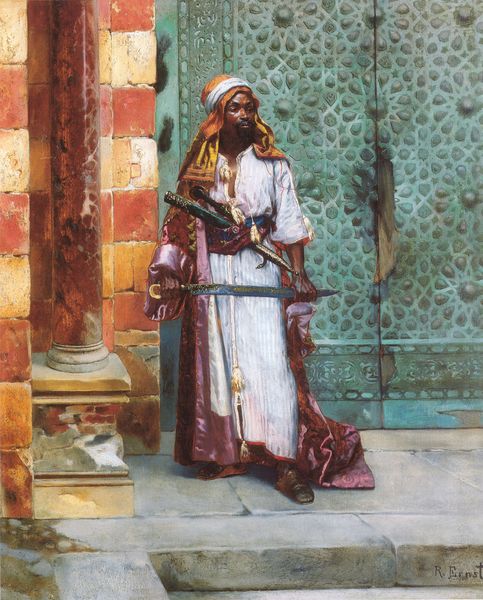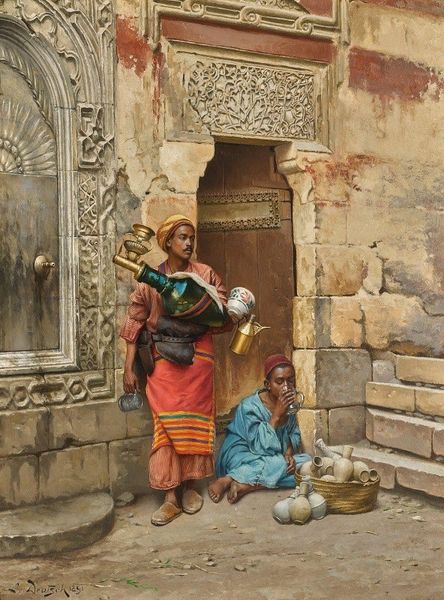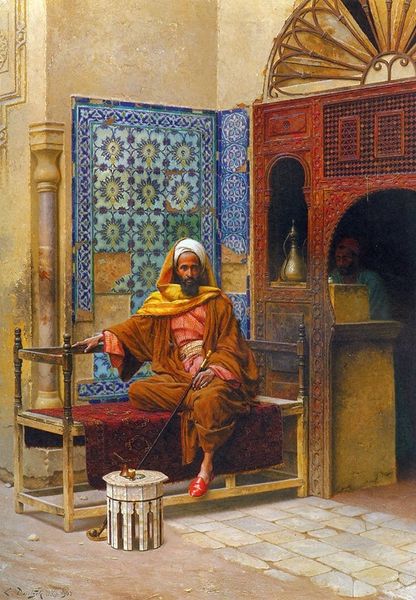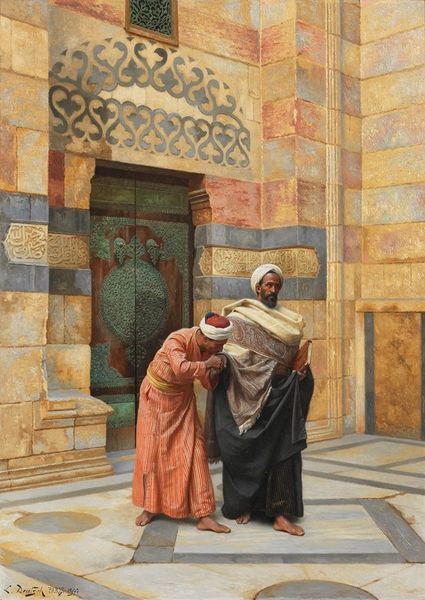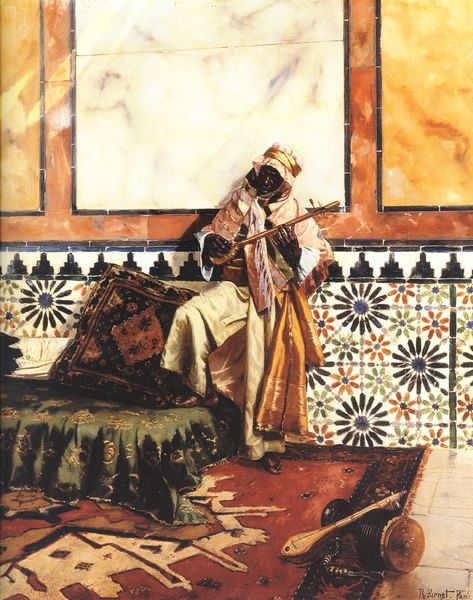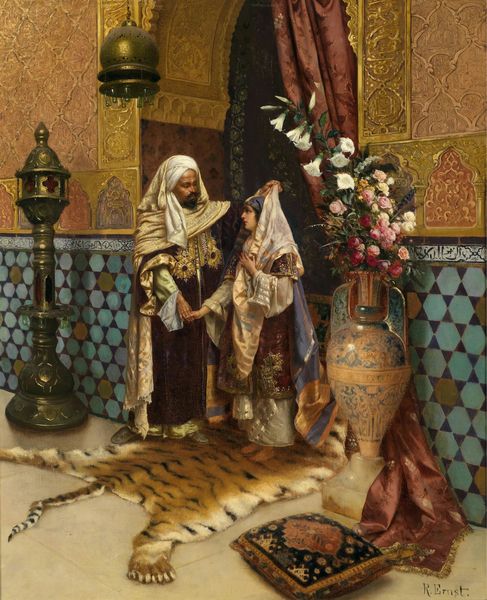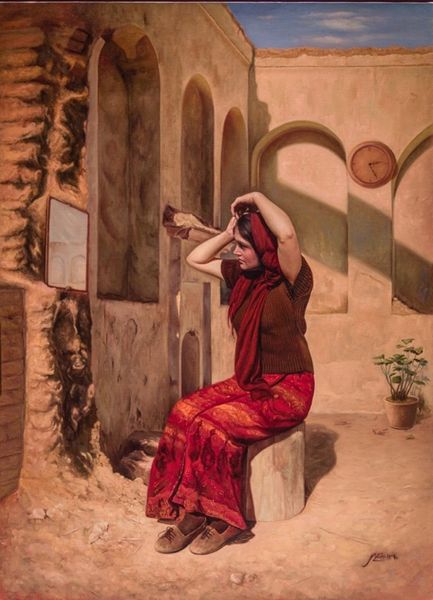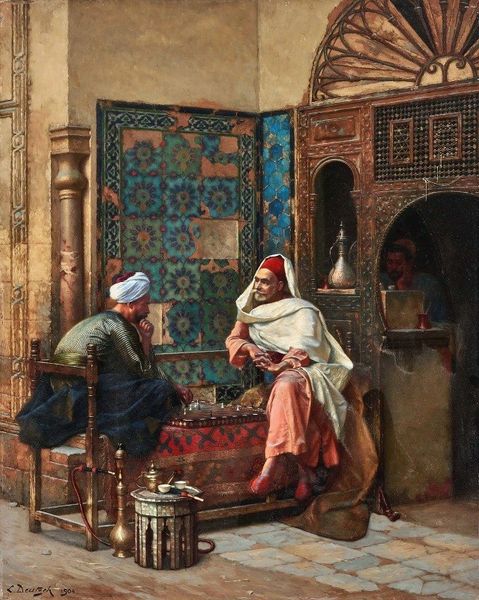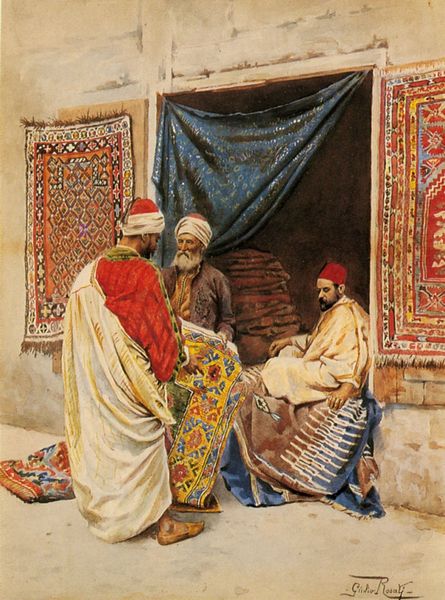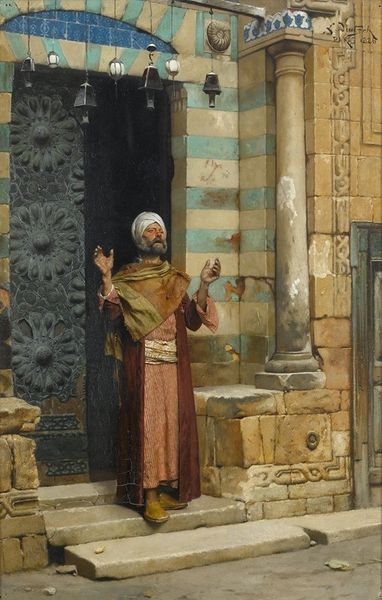
painting, oil-paint
#
portrait
#
painting
#
oil-paint
#
landscape
#
orientalism
#
19th century
#
islamic-art
#
genre-painting
#
watercolor
Copyright: Public domain
Rudolf Ernst painted 'The Flower Merchant,' during the late 19th and early 20th century, a period marked by intense European colonialism and orientalism. Ernst, like many of his contemporaries, never visited the Middle East, yet he constructed elaborate scenes based on imagination and stereotypes. The painting invites us to consider the power dynamics inherent in such representations. The flower merchant, a Black man, is depicted as a service provider, reinforcing racial hierarchies. In contrast, the woman in the doorway is pale, a symbol of Western beauty ideals. She is passive, waiting to be offered the flowers. Orientalist paintings were not simply aesthetic exercises; they were instruments of cultural domination, reinforcing the West's sense of superiority and control over the East. This image, beautiful as it may seem, is laden with historical baggage that continues to shape our perceptions today. It is crucial to reflect on how such artworks contribute to broader narratives of identity and power.
Comments
No comments
Be the first to comment and join the conversation on the ultimate creative platform.
